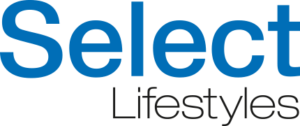Safeguarding and Whistleblowing
Our safeguarding policy ensures adults at risk are protected from abuse, harm, and neglect. It promotes a safe, respectful environment where staff understand their duty to act when safeguarding concerns arise.
Our Designated Safeguarding Lead is Emma Franks (Executive Director – CQC Nominated Individual). If you want to raise a concern or make a complaint about any of our services, please email us at tellus@selectlifestyles.co.uk.
Key Principles (Care Act 2014)
Empowerment: Supporting people to make their own choices.
Prevention: Taking early action to reduce risks.
Proportionality: Acting in the least intrusive, most appropriate way.
Protection: Offering support to those most vulnerable.
Partnership: Working with families, professionals, and other agencies.
Accountability: Clear roles, transparency, and learning from concerns.
Who is an Adult at Risk?
An adult aged 18+ who:
Needs care and support (whether receiving help or not),
Is at risk of abuse or neglect,
Cannot protect themselves from harm because of those needs.
Types of Abuse include:
Physical: Hitting, pushing, misuse of medication.
Sexual: Unwanted sexual acts or contact.
Emotional (Psychological): Intimidation, threats, isolation.
Financial or Material: Theft, scams, misuse of money.
Neglect or Acts of Omission: Ignoring needs, lack of care.
Discriminatory: Unequal treatment based on race, disability, etc.
Organisational: Poor care in a service setting.
Self-Neglect: Ignoring personal needs, hoarding.
Domestic Abuse: Emotional, physical, or controlling behaviours.
Modern Slavery: Forced labour or exploitation.
Roles and Responsibilities:
All staff must stay alert to signs of abuse and report concerns immediately—never delay.
Designated Safeguarding Lead (DSL) oversees all safeguarding reports and referrals.
Managers must ensure staff are trained, confident, and compliant with safeguarding procedures.
Responding to Concerns:
Recognise: Notice the signs—physical, emotional, behavioural.
Respond: Make sure the person is safe. Listen, reassure, don’t promise secrecy.
Report: Contact the DSL or your line manager without delay.
Record: Log accurate, factual information (who, what, when, where).
Refer: DSL refers to local authority or police where necessary.
Whistleblowing:
Staff have a duty to report concerns, even if they involve other staff or management.
Whistleblowing protects people and improves service quality.
You can report:
Internally to a manager or DSL.
Externally to the CQC, local authority, or Whistleblowing Helpline.
The organisation protects whistleblowers from bullying or retaliation. All concerns are handled confidentially where possible.
Information Sharing:
Information is shared on a “need to know” basis only.
Always follow GDPR and data protection rules.
Safeguarding overrides confidentiality when someone is at risk.
Training and Monitoring:
All staff receive safeguarding training during induction.
Refresher training is given regularly to maintain awareness and confidence in procedures.
Audits and reviews are used to improve safeguarding practice.
To read our full safeguarding policy, click the button below:
